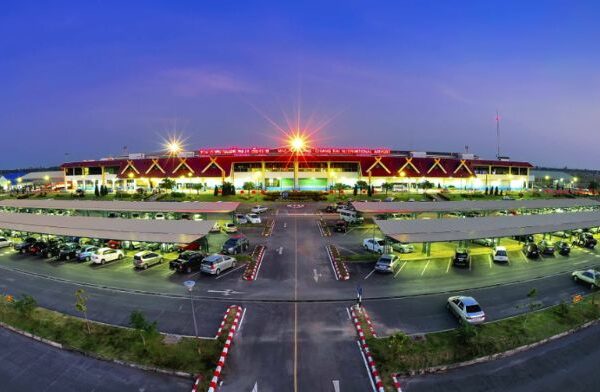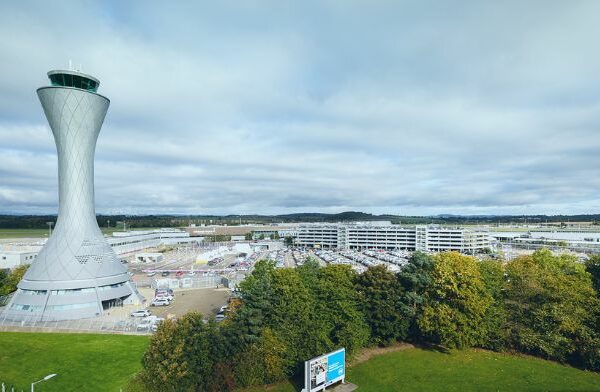Several business aviation associations have responded against suggestions from some British politicians of restricting business aircraft access to airports in the UK on emissions grounds. Instead industry leaders emphasised the government should support SAF use and production.
Representatives of the Labour Party have shared support for proposals to restrict private jets from UK airports, in the wake of a report (‘Jet Set Go’ from thinktank Common Wealth) that proposed a “near-total ban on fossil fuel powered private aircraft using UK airports from 2025 onwards.”
Andy McDonald MP, shadow transport secretary tweeted: “A phase-out date for the use of fossil fuel private jets is a sensible proposal.”
The National Business Aviation Association (NBAA) and the International Business Aviation Council (IBAC) argued that such proposals disproportionately target a single mode of transport, “with a proven record on carbon reduction and an aggressive push underway for the availability and use of Sustainable Aviation Fuels (SAF).”
SAF could reduce aviation’s carbon lifecycle emissions by up to 80%, the associations argued, and are fully certified and ready for use in all turbine engines.
IBAC Director General Kurt Edwards said the industry has been pressing ahead with SAF: “Instead of singling out business aviation for prohibitive restrictions on airport access, UK leaders should focus on efforts to make SAF more widely available in the UK through positive incentive policies to encourage production and use of SAF in greater quantities.”
Business aviation leaders reaffirmed their commitment to reducing emissions ten years ago with a plan to reduce the industry’s overall emissions 50% by the year 2050, relative to 2005 levels – with the development of SAF a key to this.
“Business aviation has continually led the way in promoting products, procedures and policies to reduce aircraft emissions, with proven results,” said National Business Aviation Association President and CEO Ed Bolen. “We urge leaders in the UK and elsewhere to set aside punitive proposals like this one, and work with us to build upon the significant progress made to date.”
“In addition to the work being done by business aviation manufacturers, operators and fuel suppliers to accelerate the adoption of SAF, we are also working to move past fuel-powered aircraft entirely, with development of electric, hydrogen and solar energy sources,” Bolen added.
The leaders also pointed to the history of industry investment in satellite-based avionics, winglets, airframe composites, advanced propulsion systems and other innovations to improve fuel efficiency of aircraft. Over the course of the past four decades, carbon emissions from business aviation have been reduced by 40%.
“At a time when leadership is needed on sustainability, the proposed ban lacks meaningful value,” Edwards commented. “It will have a de minimis impact on emissions overall while denying connectivity for London and hindering competitiveness for companies of all sizes in the region and beyond.
“Let’s focus on proposals that would have a real effect on emissions reduction while also promoting aviation connectivity and sustainability,” he concluded.
The European Business Aviation Association (EBAA) also responded: “As a sector, we know that passengers are increasingly demanding to be transported sustainably. Outright banning private jets in the UK as suggested, however, would do little to curb climate change (business aviation is but 2% of 2% of aviation’s contribution to global emissions). Furthermore air traffic is an international business, meaning unilateral, isolated solutions make little sense. We’re therefore proposing a more achievable and holistic approach.”
The EBAA instead proposed actions to support the industry’s sustainable efforts, commenting: “Real opportunities to significantly reduce the environmental impact of aviation in Europe exist, which have yet to be acted on despite being on the transport agenda for years. Governments must therefore focus on concrete actions that support European operators and their sustainability efforts.”
The actions suggested include the delivery of the Single European Sky, which the EBAA suggest could save an estimated 10% of CO2 emissions if implemented, as well as policies to support production and delivery of SAF and accelerating its use, and finally the association recommended research and innovation programmes to support the improvement of engines, battery development to speed the progress of electrification and aircraft fuel-efficiency.





